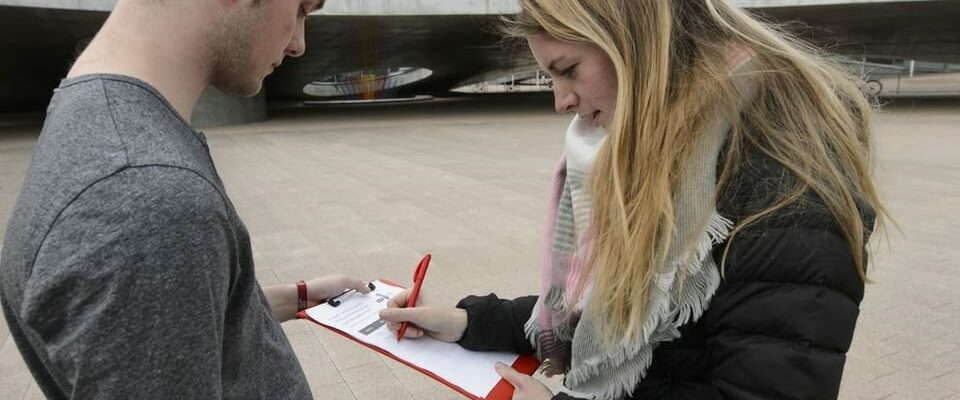contents
In the race against time, you need a lot of money in addition to a burning topic – and careful collectors. Collections are currently being made for no fewer than 26 initiatives in Switzerland.
Every signature counts. For example, for Noémie Roten from the committee for the Service Citoyen, the citizen service for everyone: “It is much more difficult to mobilize people to actively collect than we originally thought.” After about a third of the collection time, only 10,000 certified signatures are available. If things continue at this pace, the 100,000 signatures for the initiative will not come together.
The Young Greens are also collecting: for their environmental responsibility initiative. Although 130,000 signatures were received, shortly before the end it became apparent that a quarter of them were invalid. And the initiative for an unconditional basic income at the second attempt is about to end the collection.
Every third initiative fails in the collection phase
Political scientist Marc Bühlmann from the University of Bern observes how initiatives come about and fail. Over the years, about a third of the initiatives don’t make it, as he calculated. Signatures are currently being collected for 26 initiatives, almost a record. This means that eight to ten initiatives could fail in the collection phase.
Legend:
Despite digitization and online communities, many committees also rely on people who collect signatures for payment.
Keystone/Jean-Christophe Bott
One reason is that not every topic is received, Bühlmann notes: “Those topics that are not necessarily dealt with in Parliament, but are burning under the fingernails of a large part of the population, usually do not have it very difficult.” It will be very difficult for initiatives that are important for a rather small group.
Initiatives are taken far too quickly these days. This is very often not fully developed and is not true for a large part of the population.
This is confirmed by long-standing campaigner Marc Wilmes, who has advised over 30 committees. In his estimation, the means of initiative are taken far too quickly these days. This is very often not mature and is not true for a large part of the population: “As absurd as it sounds: It has become too easy to take an initiative, even if it is becoming increasingly difficult to get the necessary signatures.”
Collecting for money has its pitfalls
The wailing of the committees is actually surprising. For a few years, they have relied on digital channels and online communities. But the return is sobering, they say. That is why many committees rely on paid collectors.
The signature costs between five and eight francs at the moment, adviser Wilmes knows. But the quality is poor: “Quantity comes before quality when collectors are paid per signature.” Because the more they wanted to earn, the more inclined they were to careless work.
Up to 30 percent invalid signatures
According to Wilmes, this means that 20 to 30 percent of the signatures are declared invalid. The committees must therefore collect 140,000 signatures so that there are enough for 100,000 valid ones. This in turn makes collecting more expensive. Anyone who collects professionally now has to have a budget of between half a million and 900,000 francs, says Wilmes. Just for collecting.
Noémie Roten from the Citizen Service Committee calls the high costs something like the “dirty secret” of Swiss democracy. Nevertheless, she also relies on a “partial professionalisation”: part of the signatures should be collected for a fee. Otherwise the project for the citizen service threatens to fail.
